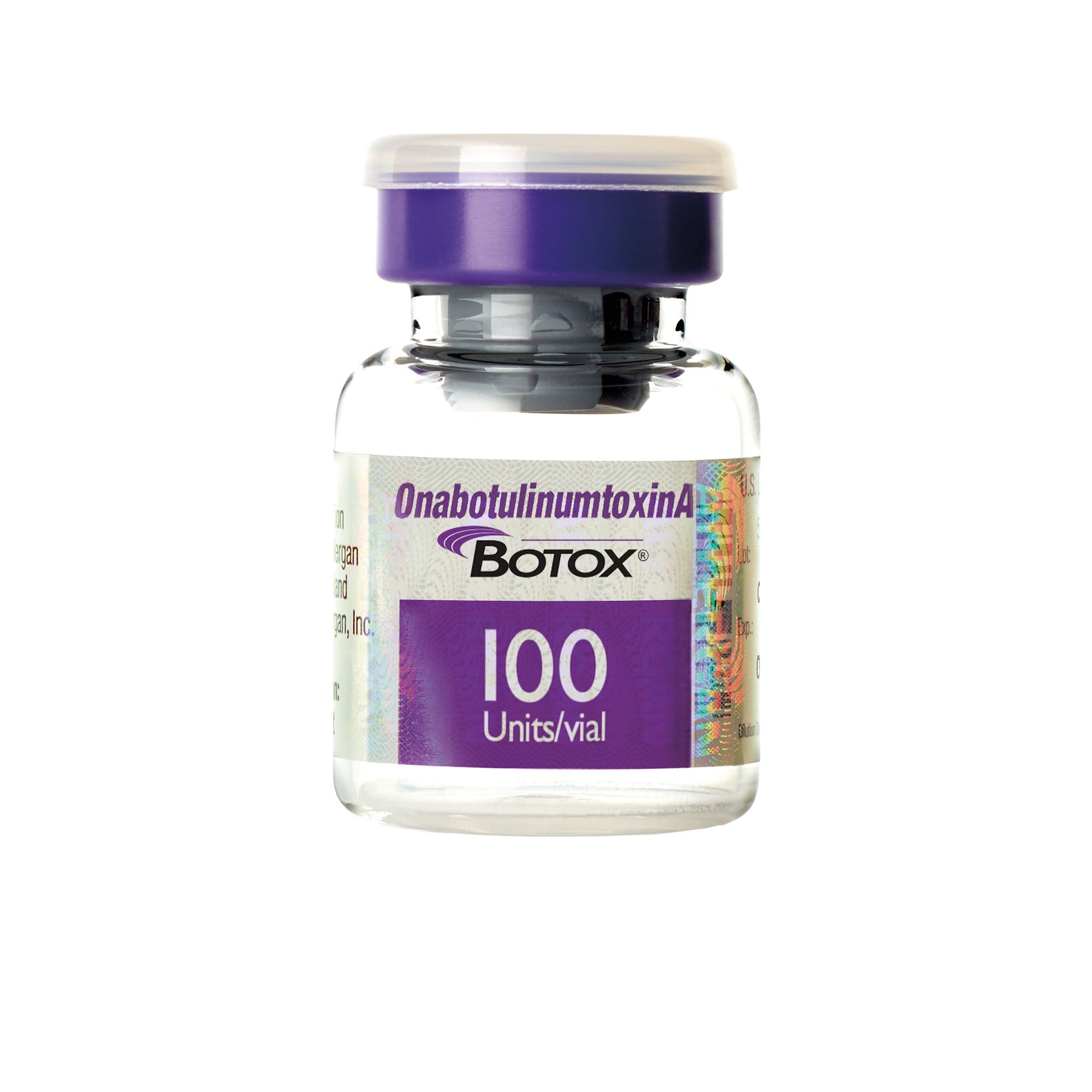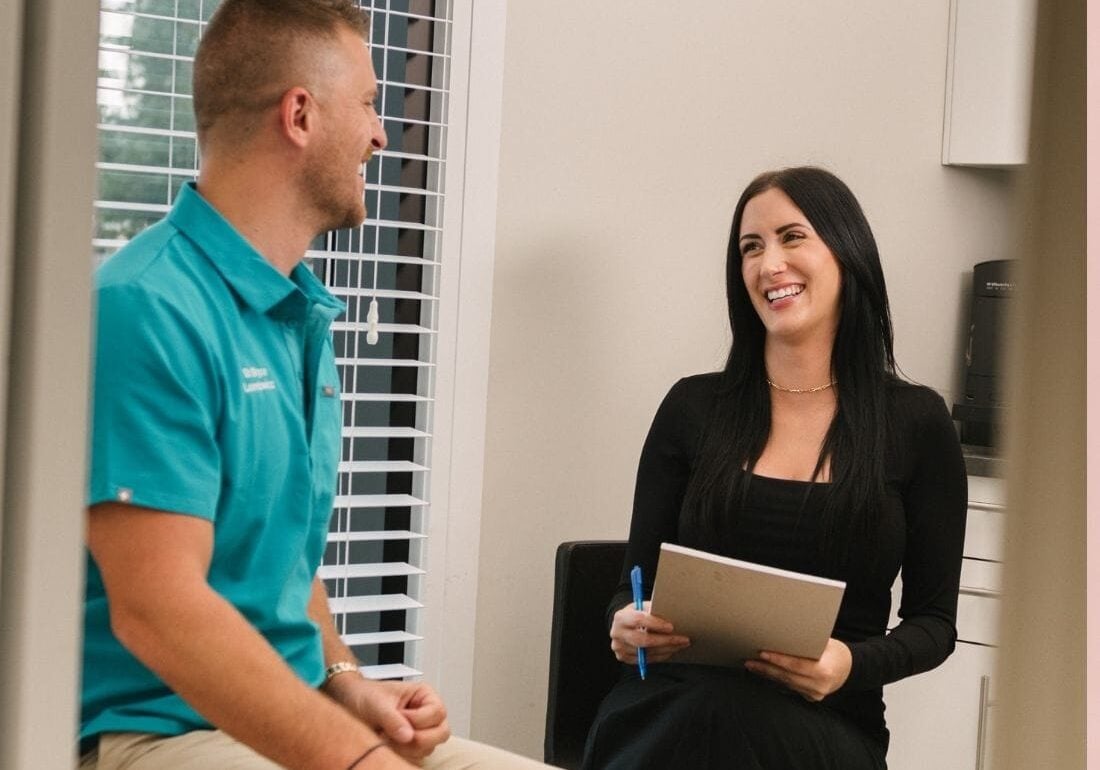For those suffering from persistent jaw pain, teeth clenching or discomfort associated with temporomandibular joint disorders (TMD), Botox® has been found to be an effective option for providing sufficient relief. TMJ disorders are often exacerbated by muscle overactivity, particularly in patients who grind or clench their teeth (a condition known as bruxism).
If you've found other therapies such as oral night guards, physiotherapy, or medications ineffective, Botox may offer the breakthrough you need, as it has proven particularly effective for those who have exhausted traditional methods and continue to suffer from persistent pain.
The Best Choice for TMD Botox Treatment
Expertise in Advanced Injection Techniques
Botox for TMJ requires highly specialized knowledge of the deeper tissues. Our injectors have been trained in the advanced applications of deeper injections that require additional precautions, thereby minimizing side effects and risks so you can have a safer experience.
Personalized Care
At Revery, we recognize that every experience is unique. Each patient suffers from their own set of symptoms. We tailor your treatment plan based on your specific condition, history, and lifestyle—so you get the results that matter most to you.
Comprehensive Support
You’re never just another appointment at Revery. From your first consultation through each follow-up, our caring team supports and guides you every step of the way, answering your questions and helping you feel at ease.
Comfortable, Modern Environment
Enjoy your treatment in our welcoming, spa-like setting equipped with the latest technology, designed to make your experience as comfortable, relaxing, and effective as possible.
What are TMJ and TMD?
TMJ stands for temporomandibular joints, which refer to the two joints that connect the lower jaw to the skull. When you chew, talk, and yawn, TMJ plays a vital role.
When these joints don't work properly, it results in Temporomandibular joint dysfunction (TMD), a group of over 30 conditions that can lead to significant pain in the jaw and muscles in the surrounding areas. TMJ-related pain is often caused by continuous muscle tension or involuntary spasms. While the severity of symptoms can vary, for many, TMD becomes a long-term issue that greatly impacts their quality of life.


How does Botox for TMJ work?
TMJ disorders often result from excessive muscle tension and overactivity in the jaw, particularly in the masseter and temporalis muscles. That’s why many times, Botox injections for TMJ have been referred to as “masseter Botox”. These muscles control jaw movement, and when they’re overused, they can contribute to pain, clenching, and grinding.
Botox injections help relieve these TMJ symptoms by relaxing these overactive muscles. Botox works by interfering with the transmission of nerve signals to the muscles.
When Botox is injected into the jaw muscles, specifically masseter, temporalis, and sometimes the lateral pterygoid muscles, it inhibits the release of acetylcholine, the neurotransmitter responsible for muscle contraction. This action temporarily prevents the targeted muscles from contracting, effectively reducing muscle tension. As these muscles relax, your jaw can move more freely, reducing pain and improving function, allowing you to chew and speak more comfortably.
A single session takes about 30 minutes, with relief lasting for up to six months.
Improving Muscle Coordination
For some patients with TMJ disorders, the muscles responsible for moving the jaw do not work in sync, leading to pain and difficulty with movement.
Botox improves muscle coordination by reducing involuntary muscle contractions and allowing the jaw muscles to move more smoothly.
As a result, patients experience less discomfort during chewing, talking, and many other situations that prompt you to use those jaw muscles.
The TMJ + TMD Botox Treatment Process
Before undergoing Botox treatment for TMJ, you'll have a consultation to assess the severity of your symptoms and evaluate whether Botox injections are an appropriate treatment option. This involves a physical examination of the jaw and discussion of medical history.
Identifying Injection Sites
The most common muscles targeted for Botox injections in TMJ are:
Masseter muscle
The large muscle located on the sides of the jaw that is responsible for chewing. This muscle is often overactive in patients who clench or grind their teeth.
Temporalis muscle
Located on the sides of the head near the temples, the temporalis muscle plays a role in jaw movement and can contribute to headaches when overworked.
Lateral pterygoid muscle
This smaller muscle helps to move the jaw side-to-side and can cause pain and dysfunction if it becomes tense.
The Treatment
The Botox injection process is relatively quick and minimally invasive, usually taking only about 30-45 minutes, including the consultation.
A fine needle is used to inject small amounts of Botox directly into the targeted jaw muscles. Most clients require multiple injections on each side of the face, depending on the severity and location of their symptoms.
How Many Units are Needed?
Whether the goal is to alleviate TMJ symptoms or reduce bruxism (teeth grinding), the number of Botox units required is customized to your needs.
Masseter: Between 20-30 units per side is typical, though it can vary depending on the individual's anatomy. Clients with larger masseter muscles may need up to 40 Botox units per side for effective relief.
Temporalis Muscle: For treating TMJ disorders, Botox injections into the temporalis muscle typically range from 10-20 units per side, depending on muscle size and the severity of the symptoms.
Lateral Pterygoid Muscle: The lateral pterygoid muscle is a smaller, yet critical muscle that helps move the jaw side-to-side. While less commonly treated than the masseter and temporalis muscles, Botox injections into the lateral pterygoid are typically administered in smaller doses, with 5-10 units per side being the standard.
Aftercare + Results
Safety is paramount and we focus on preventing complications through precise techniques and follow-up care.
We will clean the area and may gently massage it for even product distribution. You'll receive a courtesy bag with items like an ice pack and anti-bruising products (such as La Roche-Posay's Cicaplast B5) to support healing. You might experience mild bruising or swelling, which can be managed by following the post-treatment instructions we'll give you.
Once you leave our facility, we'll keep in touch. A phone check-in is standard, with recommendations for a return visit in 2 weeks to assess results. Documentation, including photos, is handled ethically to protect your privacy and support ongoing care.
The effects of your treatment typically appear within a few days, peaking at two weeks. While about 10% - 20% of patients may need a touch-up, this is discussed transparently during your consultation to set realistic expectations.
TMD Treatment Cost
With Insurance, there is an injection fee of $200.
Without insurance, the typical cost of Botox for TMJ is $600.
The number of units used for each session is 60 units. Depending on the severity of the condition, we could increase the dosage if the baseline treatment doesn't work.
TMD Botox Treatment Frequently Asked Questions (FAQs)

CONTACT
HOURS
Monday to Friday
11:00am - 7:00pm
Saturday
9:00am - 4:00pm
Welcome to Revery Medical Aesthetics, a physician-led practice serving LaSalle and Windsor Ontario. Our services are uniquely guided by an experienced physician, a rarity in a field frequently dominated by non-physician practitioners.

© 2026 Revery Medical Aesthetics
PRIVACY POLICY | REFUND/SHIPPING POLICY
Marketing by ThinkBasis Inc.
CONTACT
HOURS
Monday to Friday
11:00am - 7:00pm
Saturday
9:00am - 5:00pm
Welcome to Revery Medical Aesthetics, a physician-led practice serving LaSalle and Windsor Ontario. Our services are uniquely guided by an experienced physician, a rarity in a field frequently dominated by non-physician practitioners.
Fax: +1 226 778 2046
